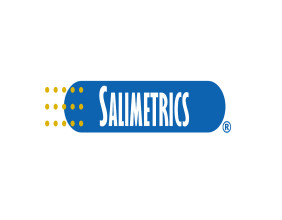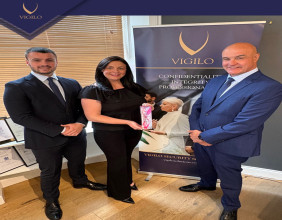The stock markets all across the globe have crashed as governments are embroiled in the outbreak of COVID-19 and its cascading effect on the economy. The sudden development has affected all the sectors and their companies directly or indirectly. The investors are now fending with the economic fallout, which is projected to be one of the biggest economic catastrophes in history. Further, there are chances that the situation may remain the same for at least six more months or may even get worse. Therefore, in this environment, the investor should buy good quality stock, which is now available at reasonable prices. Also, delaying the decision may result in loss of opportunity, as it is very difficult to target the bottom level.
One of the sectors that have shown resilience across the globe in this adverse situation is Consumer Goods sector due to huge demand and its utility. We are going to discuss two major companies of the UK from this sector, Reckitt Benckiser Group Plc and Unilever Plc. Both of these companies have huge brand presence, great customer loyalty and based on the sound fundamentals, they hold the prospect of good performance in future as well. Further, both the companies are hugely diversified across the sectors & the geographies, which gives them leverage over other similar players whose presence is not that vast, as even if one sub-segment or its business decline, the other sub-segments covers it up at the group level. As per an estimate, around 2.5 billion people in across 200 countries use Unilever’s products. Reckitt Benckiser also reportedly sells more than 20million items day in about 60 nations. Earlier
Reckitt Benckiser Group Plc
- Plans to invest 2 billion pounds, to post organic revenue growth in the mid-single digit, EPS growth in the range of 7-9 per cent and solid cash conversion: Reckitt Benckiser Group Plc (LON:RB), UK based multinational consumer goods company, is into the manufacturing and distribution of a wide range of products that comprise of household, toiletry, health & hygiene, personal care, over the counter drugs and other products like fabric treatment products, disinfectant spray and cleaners, dishwashing detergent, etc. The company has in its portfolio popular brands like Durex, Scholl, Strepsils, Clearasil, Veet, Dettol, Harpic, Lysol, Mortein, Air Wick, Vanish etc. Geographically, the company caters to UK, Russia, Israel, North America, Australia, New Zealand, North Africa, Middle East (excluding Israel) and Turkey, Africa, South Asia, North Asia, Latin America, Japan, Korea and the Association of Southeast Asian Nations (ASEAN).
The company is currently planning to increase its investment in order to boost the capacity of disinfectants, sanitisers, surface cleaners and soaps, which are in great demand due to the spread of COVID-19. The company has already created “RB Fight for Access Fund” by putting additional £32 million to deal with the outbreak of COVID-19. Further, the company has also collaborated with Jumia, the leading e-commerce platform in Africa, to help the consumers of 8 countries in Africa to have a continuous supply of hygiene products such as Harpic, JIK and Dettol soap bars, disinfectants, and liquid hand wash. In a goodwill gesture, the e-com platform will be not be taking any commission and has expressed its intention to offer the initial commission converted into discounts on the price offered to the consumers. Reckitt Benckiser will also be offering free shipping to all the 8 countries for all its listed products.
Moreover, as per the strategic review, the company plans to invest 2 billion pounds over the next three years. The company has stated that apart from its regular 200 million pounds investment along with a step up in productivity of £1.3 billion, it will be able to build a firm and viable growth business. The company estimates to post organic revenue growth in the mid-single digit, EPS growth in the range of 7-9 per cent and solid cash conversion. The company is targeting a higher level of like-for-like net revenue growth compared to what it delivered in 2019 (of 0.8%). These investments during the period of 3 years are planned to be funded by the company’s internal productivity savings from 2020 onwards. This will then be clubbed with one-off transformation costs of £250m and a higher level of capex, of approximately 4% of net revenue, over the next two years. For all these, the company has prepared a three phases strategy, which includes, to first stabilise and perform the company, then to perform and build, and finally, to outperform. The first phase has already started in 2020, where the company would be looking to fill the competitive gaps, strengthening its foundations and to launch the productivity program. The second phase is projected to start in mid-2021 which will run through 2023, in which the company will strengthen its three vital segments of Hygiene, Health and Nutrition. The company has also planned to expand the reach from 75 core category market units (CMUs) to 100 crore CMUs through its well-established channels-digital and e-Commerce the future of the industry. By 2023, the company plans to attain its goal outlined in Strategic Review. Moreover, 2020 is expected to be a transitional year for the company. In 2020, the second half is projected to be strong than in 2019, in terms of revenue growth. 2020 adjusted operating margin is expected to be about 350 bps lower than in 2019, as the company would be including the onetime cost in the adjusted operating profit.
FY 19 Financial Performance

(Source: Company Reports)
Stock Price Performance
On 6th April RB. Stocks were trading at a price of GBX 6,196.00 (13: 36 PM GMT), down by 56.00 points or 0.90% from its previous closing of GBX 6,252.00. The Market Capitalisation of the stock stood at 44.38 billion.
Unilever Plc
- Underlying sales growth projected to be in the lower half of the multi-year 3-5% range with the first half of underlying sales growth is projected to be below 3%, though an improvement from the fourth quarter:Unilever Plc (LON:ULVR), a fast-moving consumer goods (FMCG) company, caters to consumers in over 200 countries, and has operations in more than 70 countries. The company operates different segments like Personal Care, which comprise of skincare and hair care products, deodorants and oral care products. Foods that includes soups, sauces, snacks, mayonnaise, salad dressings etc. Home care products like detergent powders, liquids, soap bars etc. and Refreshment, comprising of ice cream and tea. The company has in its portfolio popular brands like Axe, Dove, Knorr, Lipton, Lux, Magnum, Rexona, Sunsilk, Surf etc. Geographically the company caters to vast regions of Asia, the Americas and Europe. For FY 19, the company has reported 2.9% growth in underlying sales driven by 1.2% rise in volume and 1.6% increase in price. There has been 50bps expansion in underlying operating margin during the period. However, operating margin and net profit declined on the back of profit of €4.3 billion in the prior year from the spreads disposal. There has been €0.7 billion increase in the free cash flow to €6.1 billion driven by an increase in underlying operating profit. Moreover, in 2020, the company expects underlying sales growth to be in the lower half of the multi-year 3-5% range with first half of underlying sales growth is projected to be below 3%, which is an improvement from the fourth quarter of 2019.
FY 19 Financial Performance

(Source: Company Reports)
Stock Price Performance
On 6th April ULVR Stocks were trading at a price of GBX 4,108.00 (12:47 PM GMT), up by 71.00 points or 1,76% from its previous closing of GBX 4,037.00. The Market Capitalisation of the stock stood at 104.44 billion.




